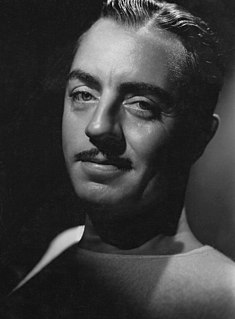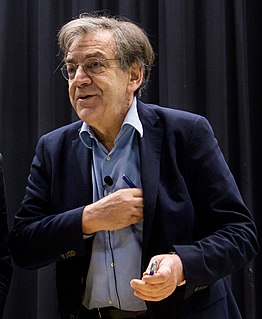A Quote by Alexis de Tocqueville
Step back in time; look closely at the child in the very arms of his mother; see the external world reflected for the first time in the yet unclear mirror of his understanding; study the first examples which strike his eyes; listen to the first words which arouse within him the slumbering power of thought; watch the first struggles which he has to undergo; only then will you comprehend the source of his prejudices, the habits, and the passions which are to rule his life. The entire man, so to speak, comes fully formed in the wrappings of his cradle.
Quote Topics
Arms
Arouse
Back
Back In Time
Child
Closely
Comprehend
Cradle
Entire
Examples
External
Eyes
First
First Time
Formed
Fully
Habits
Him
His
His Eyes
Life
Listen
Look
Man
Mirror
Mother
Only
Passions
Power
Power Of Thought
Prejudices
Reflected
Rule
See
Source
Speak
Step
Strike
Struggles
Study
Then
Thought
Time
Unclear
Undergo
Understanding
Very
Watch
Which
Will
Within
Words
World
Related Quotes
Man is more than his environment. It is from the innate quality of the Spirit in him, his inner storehouse, that he draws those ideas, his intuitions, which unify his perceptions of the external world instantaneously with a value which is qualitative and not quantitative, and which he embodies in the works of his culture - those achievements which belong not only to one particular time but to all times, and mark the path of his upward progress.
The life-history of the individual is first and foremost an accommodation to the patterns and standards traditionally handed down in his community. From the moment of his birth the customs into which he is born shape his experience and behavior. By the time he can talk, he is the little creature of his culture, and by the time he is grown and able to take part in its activities, its habits are his habits, its beliefs his beliefs, its impossibilities his impossibilities.
I have never gone into a picture without first studying my characterization from all angles. I make a study of the fellow's life and try to learn everything about him, including the conditions under which he came into this world, his parentage, his environment, his social status, and the things in which he is interested. Then I attempt to get his mental attitude as much as possible.
As man reaches out toward the twenty-first century, he will learn to be suspicious of all ideas that are not formulated so that they can be tested by observation. He will realize that the history of human thought shows that the ideas of which we are surest are the ones we most need to test. He will realize that his common sense only mirrors his training and experience. What seems natural and right to him is usually a reflection of the conditions under which he spent his first decade of life.
The first step to be taken by one who wishes to follow Christ is, according to Our Lord’s own words, that of renouncing himself - that is, his own senses, his own passions, his own will, his own judgement, and all the movements of nature, making to God a sacrifice of all these things, and of all their acts, which are surely sacrifices very acceptable to the Lord. And we must never grow weary of this; for if anyone having, so to speak, one foot already in Heaven, should abandon this exercise, when the time should come for him to put the other there, he would run much risk of being lost.
The first responsibility of the Muslim is as teacher. That is his job, to teach. His first school, his first classroom is within the household. His first student is himself. He masters himself and then he begins to convey the knowledge that he has acquired to the family. The people who are closest to him.
However patriarchal the world, at home the child knows that his mother is the source of all power. The hand that rocks the cradlerules his world. . . . The son never forgets that he owes his life to his mother, not just the creation of it but the maintenance of it, and that he owes her a debt he cannot conceivably repay, but which she may call in at any time.
The material which a scientist actually has at his disposal, his laws, his experimental results, his mathematical techniques, his epistemological prejudices, his attitude towards the absurd consequences of the theories which he accepts, is indeterminate in many ways, ambiguous, and never fully separated from the historical background . This material is always contaminated by principles which he does not know and which, if known, would be extremely hard to test.
And then he pressed into her. First his thighs, then his middle, his chest, and finally his mouth. She made a whimpering sound, but its definition was unclear even to her, until she realized that her arms had gone around him instinctually, and that she was clutching his back, his shoulders, her hands restless and greedy for the feel of him. He kissed her openmouthed, using his tongue, and when she kissed back, she felt the hum that vibrated deep inside his chest. It was the kind of hungry sound she hadn’t heard in a long time. Masculine and carnal, it thrilled and aroused her.
This is a man with an old face, always old... There was pathos, in his face, and in his eyes. The early weariness; and sometimes tears in his eyes, Which he let slip unconsciously on his cheek, Or brushed away with an unconcerned hand. There were tears for human suffering, or for a glance Into the vast futility of life, Which he had seen from the first, being old When he was born.
What becomes decisive to a Justice's functioning on the Court in the large area within which his individuality moves is his general attitude toward law, the habits of the mind that he has formed or is capable of unforming, his capacity for detachment, his temperament or training for putting his passion behind his judgment instead of in front of it. The attitudes and qualities which I am groping to characterize are ingredients of what compendiously might be called dominating humility.
Each man is contained and constrained, on entering social life, to fit his own life in, just as he fits his words and thoughts into a language that was formed without and before him and which is impervious to his power. Entering the game, as it were, whether of belonging to a nation or of using a language, a man enters arrangements which it does not fall to him to determine, but only to learn and respect the rules.
Observe your cat. It is difficult to surprise him. Why? Naturally his superior hearing is part of the answer, but not all of it. He moves well, using his senses fully. He is not preoccupied with irrelevancies. He's not thinking about his job or his image or his income tax. He is putting first things first, principally his physical security. Do likewise.








































